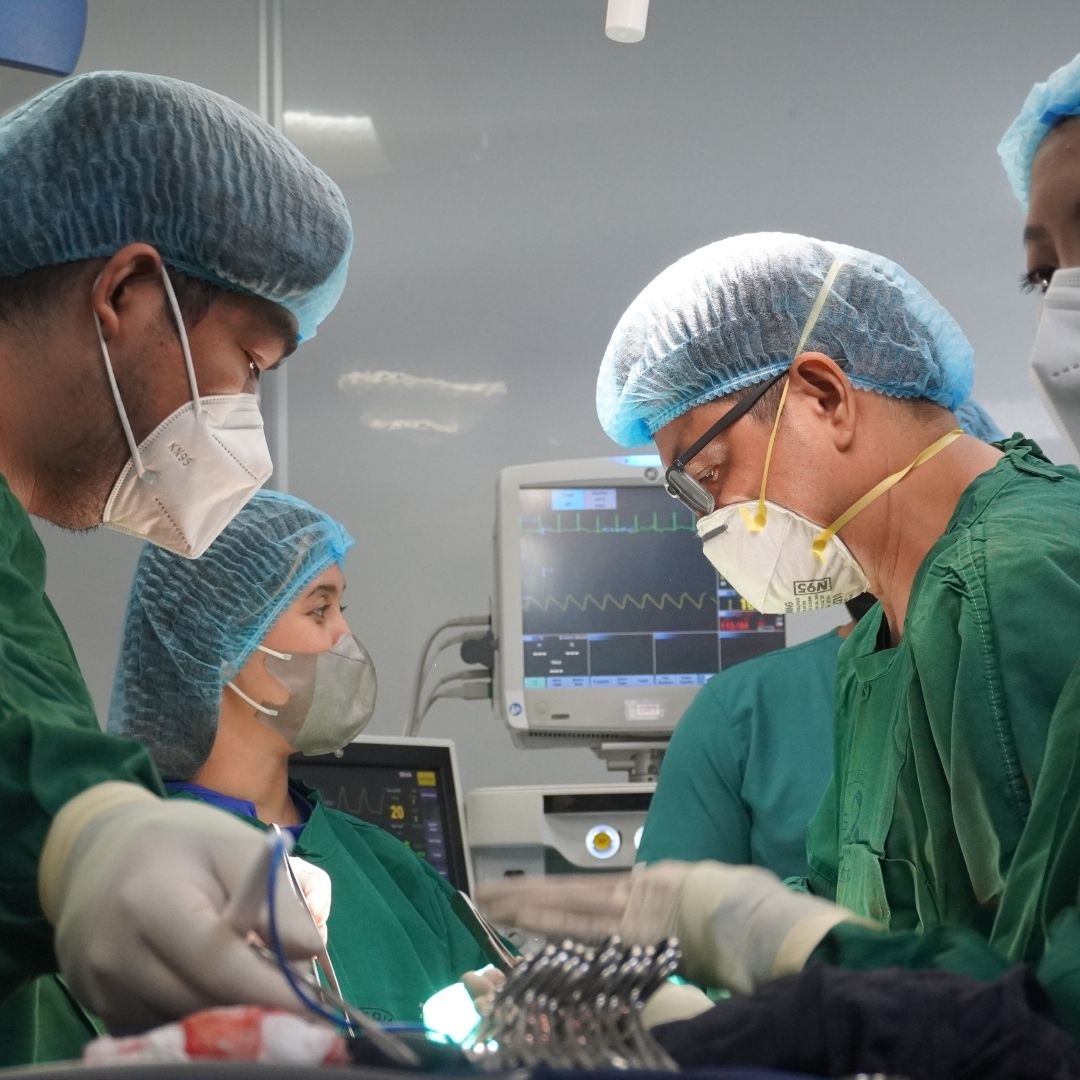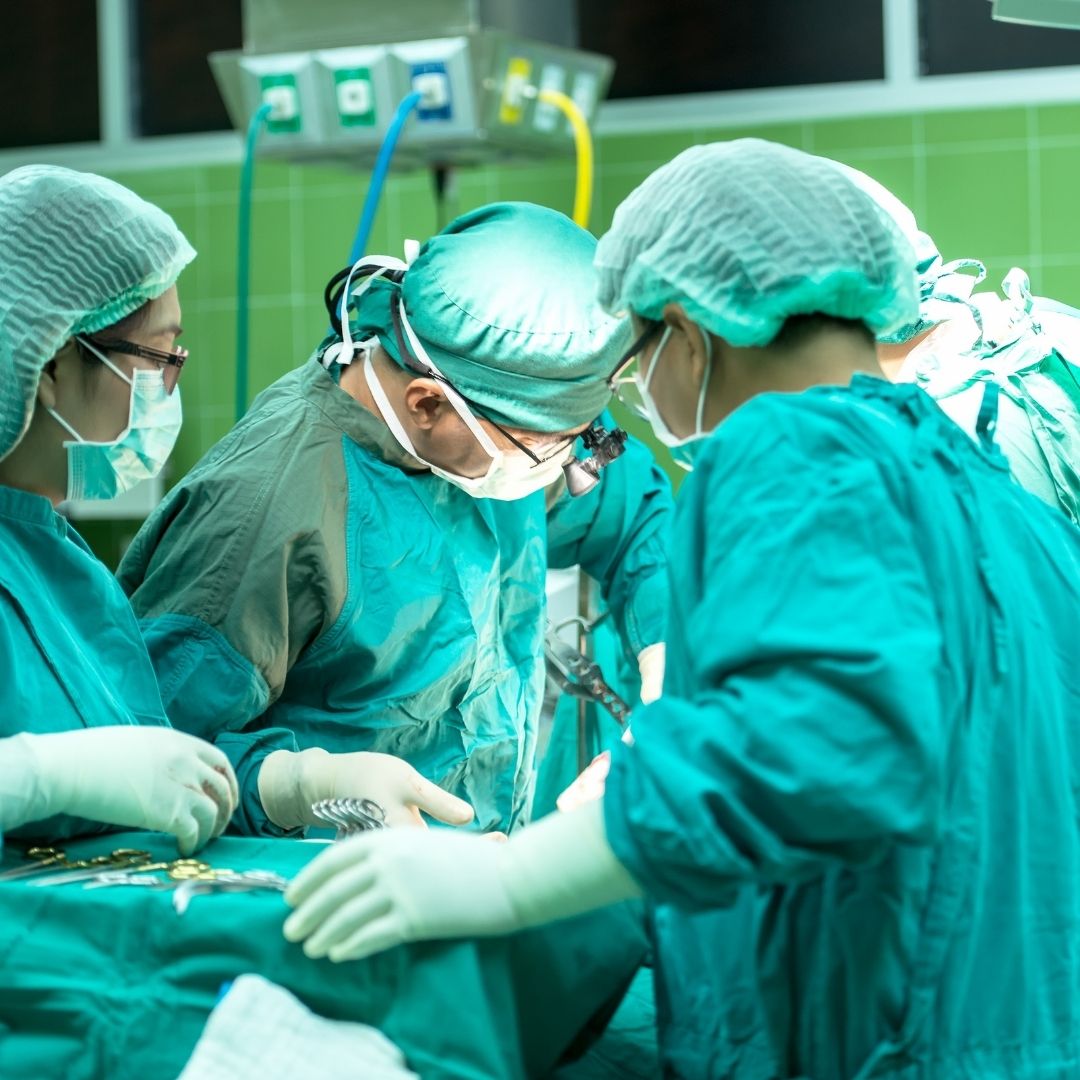
Why Do Patients Gain Weight After Bariatric Surgery?
The obesity epidemic in the world to grow and more people are turning to weight loss surgery in Turkey as an option to help them lose weight. A misconception for many people considering weight loss surgery is that most people who have bariatric surgery are likely to eventually regain more of the weight they lose if they don’t pay attention. This is generally also a real fear for patients who have had bariatric surgery as any gaining weight after gastric sleeve can be discouraging.
Firstly, let’s address the misconception that most bariatric patients weight gain after gastric sleeve. While it is true that about half of all bariatric surgery patients do regain a small amount of weight in the years following weight loss surgery, long-term post-op studies of bariatric patients show the majority of these patients are able to maintain long-term weight loss.
According to a study, while 93% of patients maintain a 10% weight loss for 12 years, only 40% of patients were able to maintain a 30% weight loss in that time. Another study revealed that many people regain weight in the 2-5 years after their surgery. Weight gain doesn’t have to be substantial either. About 50% of patients gain back 5% of what they lost. It is expected that most patients will then gain 5–10 kg and the weight will stabilize at a level where patients have lost 60–70% of their excess weight and it’s normal.
While bariatric surgery is a proven effective method to help patients lose weight, it should not be considered a “cure” for obesity, as it requires patients to maintain a strict diet and healthy lifestyle with regular exercise after surgery. Patients who approach bariatric surgery as a tool to help them achieve their goals, rather than a “quick fix” are more likely to be successful in achieving their weight loss goals after surgery.
Healthy Türkiye continues the lifelong control and follow-up of patients who have had bariatric surgery in Turkey. And in order to reduce the risk of gaining weight after gastric sleeve, our healthcare team ensures the happiness of patients with regular checkups and recommendations.
Understanding Weight Gain After Bariatric Surgery
Weight loss might sometimes feel like a never-ending battle. If you are considering bariatric surgery or have already undergone surgery, it is important to remember that the surgery isn’t a quick fix and you can still experience some setbacks. Bariatric surgery can be a solution to obesity for some individuals, but without proper care, it can lose its effectiveness, leading to weight regain. Statistics reveal that the range of weight loss for people who undergo surgery is 12% to 39% of presurgical body weight or 40% to 71% of excess weight. And, bariatric surgery results in the most significant and sustained weight loss as well as reversal of type 2 diabetes mellitus.
When you regularly eat more calories than you burn, your gain weight but aside from caloric consumption, there are other reasons why people gain weight. Drugs, some medical conditions, hormonal imbalances, toxins, stress, depression, and slow metabolism are also contributing factors to weight gain. All these factors have to be taken into consideration even when you choose bariatric surgery as an option.
It is important to remember that weight loss surgery is not designed to be useful alone. Bariatric patients must make a commitment to healthy lifestyle changes including adopting a diet and sticking to a regular exercise plan for a successful result. Patients who are unable to maintain these recommended lifestyle changes might struggle to lose weight after surgery, or they can experience weight regain after bariatric surgery.
Causes of Weight Gain After Bariatric Surgery
Although bariatric surgeries have been meticulously studied and proven to be both safe and effective, patients do not always lose the expected amount of weight after weight loss surgery for a number of reasons. These reasons can be examined under four main headings.

Anatomical Reasons
In time, the stomach will soften and stretch. While the stomach after the bariatric procedures will always remain small compared to how it was pre-operation, people find over time that they can eat more food per sitting if they choose to. The amount of stomach stretching is the same in patients who have gained weight and those who haven’t gained weight.
Patients with weight gain after bariatric surgery usually don’t eat larger meals than people without weight gain, they just eat more frequently (snacking and calorific liquids) and consume more addictive, hunger-generating foods/drinks such as alcohol, milky or sweet drinks, salty/fatty snacks, and processed foods. The narrative that stomach stretching leads to weight gain is a false narrative that’s popular on the internet. Actually, regain weight underlying cause of weight regain is addiction, grazing, and comfort eating. While it’s true that the person’s softer stomach now allows them to eat more of the wrong thing for the wrong reason, it’s the habit of doing the wrong thing that’s the underlying problem.

Behavioral Reasons
Lifelong commitments to behavior are required to manage weight long-term. Despite the inability to consume large amounts of food, behaviors such as grazing in between meals or eating the wrong foods can have a negative impact on diet. Another aspect of a person’s behavior is the level of daily activity. We live in an obesogenic environment, and this combined with an individual’s own challenges to change their thinking and behavior might lead to weight gain being quite common following bariatric surgery.
Physiological Reasons
Bariatric surgeries alter your digestive tract, which results in food moving through the intestine much more quickly. Dumping syndrome consequences when the stomach empties rapidly after eating. Patients might feel weak, dizzy, nauseous, or have heart palpitations shortly after a meal. This condition can be avoided if people follow good eating habits and post-operative instructions.
Obesity is a chronic situation and requires significant life changes following bariatric surgery in order to effectively manage weight. Psychological reasons for weight gain might be observed in many ways. A person can slip back into ‘old habits’ of an unhealthy relationship with food, especially the addictive foods and drinks we consume to make us feel better. Patients may feel a loss of identity following weight loss. They even become depressed due to factors they may not have considered such as excess skin, or because their relationships with friends, colleagues, and partners have not improved even though they have lost weight.
Diabetes As Cause of Not Lose Weight After Bariatric Surgery
Obese patients commonly develop comorbidities, which are other medical conditions associated with obesity. Bariatric surgery is expected to help them lose weight, which might also result in improvements in overall health, including these conditions. Among these conditions is diabetes, one of the most common obesity comorbidities.
According to the study, patients with diabetes may need to take insulin or other drugs that stimulate the production of fat and cholesterol, making it more difficult for them to lose weight. In this study, other factors that might lead to weight gain in patients with diabetes include a protective increase in caloric intake to treat episodes of low blood sugar, reduction of urinary glucose losses, and sodium retention which are a direct effect of insulin on the distal tubule in the kidney.
Treatments for Weight Gain After Bariatric Surgery
If the weight gain after bariatric surgery is minor, no treatment might be necessary. Most patients begin weight gain from either a stall or plateau after losing as much as 60% of their excess weight following surgery.
But when the weight gain is more significant, that might quickly become a problem and something that should be dealt with quickly to avoid complications and health challenges. There are several treatment methods for post-surgery weight gain.
Therapy/Counseling
Depending on the severity of the weight gain after bariatric surgery, it may be important to seek therapy and determine if and why you are struggling with eating, exercise, and other necessary health changes. Usually, it is an underlying issue that can be controlled with the right counselor and program. Nutrition counseling can also be helpful. If you need therapy or counseling, you can contact Healthy Türkiye.
Pouch Reset
Another option is a pouch reset method. Patients go back to the diet that they had immediately after surgery in order to shrink their pouch and bring it back to normal. There is no evidence that a pouch reset exists, or is anything more than a crash diet to lose some weight quickly. If you decide to go this route, you can contact Healthy Türkiye’s expert team. Because you should only do so under a doctor’s supervision.
Revision Surgery
If changes have occurred in your stomach or intestines that have led to a decrease in the effectiveness of your bariatric surgery, a bariatric revision may be necessary. Revisions for bariatric surgery do come with an increased risk of complications, so it is only used as a last resort. You can use Healthy Türkiye’s free consultations to learn about bariatric operation revision procedures.
How to Avoid Gaining Weight After Bariatric Surgery?
The key to avoiding regaining weight after bariatric surgery is education and counseling on diet, health behaviors, and exercise. Attend follow-up appointments with your doctor, dietitian, and psychologist Professionals are able to help you identify the emotional triggers and underlying issues that may lead to regaining weight and managing them effectively.
Adhering to the Given Diet
Closely following the prescribed diet helps you lose weight safely and avoid regaining weight. Healthy Türkiye’s dietitian will explain to you the types of food you’ll need to follow after surgery, and how much food you can eat per meal. Your doctor may recommend:
Eating slowly: Consuming the meals in at least 30 minutes will avoid dumping syndrome. It should also take you 30 to 60 minutes to drink 1 cup of liquid. You should also leave a 30-minute interval between meals and liquids.
Eating small meals: You will be required to eat smaller meals. It’s about a half-cup of each meal to start with, but you can eat several meals a day, up to a maximum of six meals. This will vary from patient to patient so it is important to follow the advice of Healthy Türkiye’s dietitian.
Drinking between meals: Drinking too much liquid at or around mealtime may make you feel full, thus preventing you from consuming enough nutritious food.
Chewing your food properly: Large pieces of food may get stuck in the very narrow passage between your stomach and intestine and block the passing of food. Blockages can cause vomiting and stomach aches.
Choosing high-protein healthy foods over fatty and sugary foods: Protein helps you maintain muscle mass. Fatty foods and sugar may cause dumping syndrome.
Avoiding alcohol: Alcohol causes disinhibited eating and a lack of satiety. It is also a source of calories.
Taking supplements: Because you will be eating less, you may not be getting enough nutrients from your food, so you might require supplements.
Taking supplements: Because you will be eating less, you may not be getting enough nutrients from your food, so you might require supplements.
Make Fitness a Priority: Increase daily physical activity. You should start slow and progress gradually. Progressive resistance training can decrease abdominal fat.
Enlist the support of your family and friends: People who care for you can help you stick to healthy eating and fitness habits, as well as help you overcome emotional problems.
What Support Does Healthy Türkiye Offer Patients Before and After Bariatric Surgery in Turkey?
As Healthy Türkiye, we prepare all our patients for weight loss surgery by giving them all the information they need and informing them of what is expected of them following the surgery.
After the bariatric surgery in Turkey, we offer follow-up appointments after one week, then three months later, again at 6 and 12 months, and then once every year. During these medical check-ups, we chat with the patient, carry out blood tests to check their nutritional levels are normal and keep an eye on their progress.
Additionally, Healthy Türkiye refer patients to expert dieticians and psychologists to help advise and support the patient through the process of losing weight if they need it. This support generally will involve, portion size suggestions, nutrition education, and general guidance and advice.
When Can the Result of the Surgery Be Considered Good?
Conventionally, the result of bariatric surgery in Turkey is considered to be good when the patient has lost 50% or more of the excess weight. However, sometimes even a 40% loss of excess weight might mean a weight loss of 40–50 kg which might be significantly more than any other alternative weight loss method would allow.
The success of bariatric surgery should not be assessed only in terms of weight loss or regain, the changes in health status and quality of life should also be considered. A study that examined the impact of bariatric surgery on the quality of life after two years, found that the quality of life of 97% of the patients had improved after the surgery.
Examples of positive changes included an overall improvement in physical and mental fitness, increased self-esteem, higher energy levels, reduced physical pain, an improved sex life, more successful social behavior, and improved emotional health. Satisfaction with the outcome of bariatric surgery starts with setting realistic goals and being aware of your active role in reaching and maintaining the result.
The Study of Weight Gain After Bariatric Surgery
A recent study published in the Journal of Bariatric Surgery Outcomes conducted a comprehensive analysis of post-bariatric surgery weight management. The study found that while there is a common misconception that most bariatric patients regain significant weight after surgery, long-term post-operative studies indicate that the majority of patients are able to maintain their weight loss. Specifically, the study revealed that around 93% of patients maintained a 10% weight loss for 12 years, showcasing the effectiveness of bariatric surgery in the long run. Additionally, the study emphasized the importance of ongoing support, including psychological counseling and dietary guidance, in achieving successful outcomes.
Conclusion About Weight Gain After Bariatric Surgery
A very common misconception is that it’s very easy to lose weight with bariatric surgery. It’s just a matter of eating less and moving more. But what people don’t understand is that there are secondary considerations and complications that need to be dealt with when it comes to obesity.
Long-term weight management is a difficult task and, as Healthy Türkiye in Turkey, we take a multidisciplinary team consisting of a psychologist, dietitian, exercise physiologist, and a surgeon to ensure we get the best results for our patients. Each intervention is a special one, so unless there is a multidisciplinary approach, you run the risk of missing key areas where you may need extra support. That makes a multidisciplinary approach a must.
If you are considering having bariatric surgery in Turkey, please contact Healthy Türkiye for support. We are here and walk the journey with you in this process.




